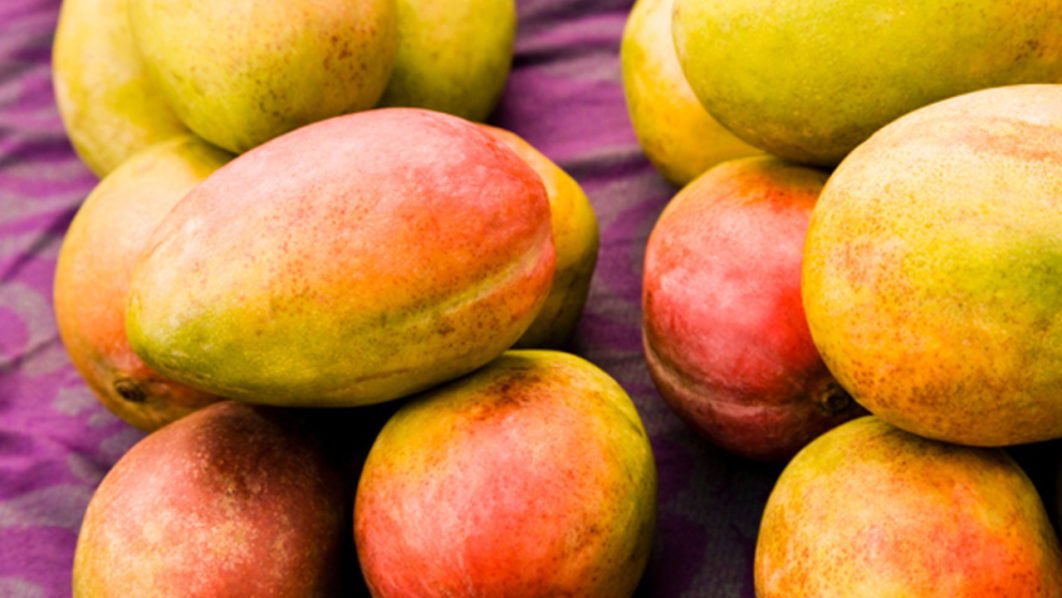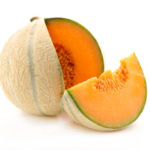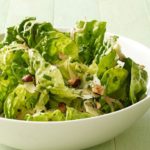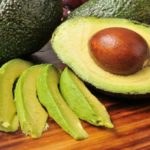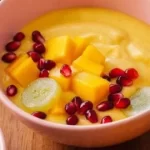Healthful benefits of eating mango
Did you know that some of the benefits of eating mango includes fighting hypertension, diabetes and skin conditions?
As one of the fruits for this skin, mango nourishes the skin and protects the arteries.
For its aroma, mango is a masterwork of nature. Its delicate flavour, It’s dietary and with enormous therapeutic properties.
Other names: Man-gay, Mangga, man-kay
French: Mangue
Spanish: Mango
German: Mango
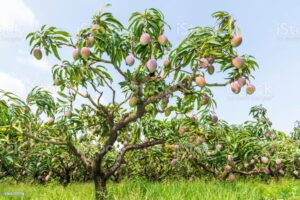
The mango fruit (‘Mangifera indica’ L.) is an evergreen tree that belongs to the botanical family Anacardiaceae.
It grows to a height of 25 m. Its fruit is ovoid having a thin orange, yellow or greenish skin.
This fruit is native to Southeast Asia, and India. However, it is cultivated in tropical regions of Africa, Asia and America.
The Portuguese introduced this fruit to Brazil in 16th century. The major producing countries remain Brazil and Mexico.
Properties of Mango fruit
The pulp of the Mango fruit is made up of 81% water which is less than the plum (85.2%) or the peach (87.7%).
It’s carbohydrate content per 100 grams is 15.2% and most the edible portions consists of sugars (fructose, glucose and saccharose).
There’s a significant amounts of starch found in an unripe Mango but readily converts to sugar once the fruit starts ripening.
The proteins and fat content is quite low (0.15% and 0.27% respectively).
SEE ALSO: Foods To Avoid With an Ulcer
The nutrients that make up the amazing benefits of eating mango are:
Provitamin A
For every 100 grams of edible portion of mango, it contains 389 μg RE which represents 1,295 IU of vitamin A. It noteworthy that daily requirement of vitamin A is 1,000 μg RE, 300-g mango supplies.
It is one of the fresh fruits with enormous vitamin A content followed by cantaloupe (322 μg RE per 100 g).
One of the benefits of eating mango is that sixteen types of carotenoid are found in mango which are responsible for its vitamin A action. Beta-carotene is of one the most abundant.
These carotenoid are vegetable pigments that convert to vitamin A within the body.
In essence, vitamin A is quite essential to the maintenance of epithelial tissues such as the skin and mucosa which lies the internal system of the body.
In terms of the benefits of eating mango, the carotenoids found in mango are powerful and potent antioxidants that neutralize oxidising free radicals which are molecules responsible for cellular aging.
Vitamin C
Mango fruit is one of the good sources of vitamin C. It contains 27.7 mg per 100 grams
Vitamin E
We obtain 33% of the daily requirement for this vitamin for an adult male from a 300 grams of this fruit. In essence, it is one of the fresh fruits with amazing vitamin contents.
Mango contains vitamins B1, B2, B6 and Niacin. Its mineral contents are potassium, iron, and magnesium among others.
There are also no nutritive components found in mango such as soluble fiber (pectin), organic acids and tannins.
Mango Composition
Per 100 grams of edible portion
Energy = 65.0 kcal = 273 kj
Fiber = 1.80 g
Carbohydrates = 15.2 g
Vitamin A = 389 μg RE
Vitamin B1 = 0.058 mg
Vitamin B2 = 0.057 mg
Niacin = 0.717 mg NE
Vitamin B6 = 0.134 mg
Folate = 14.0 μg
Vitamin B12 = ___
Vitamin C = 27.7 mg
Vitamin E = 1.12 mg ∝-TE
Calcium = 10.0 mg
Phosphorus = 11.0 mg
Magnesium = 9.00 mg
Iron = 0.130 mg
Potassium = 156 mg
Zinc = 0.040 mg
Total Fat = 0.270 g
Saturated Fat = 0.066 g
Cholesterol = __
Sodium = 2.00 mg
% Daily Value provided by 100 grams of mango fruit.
Percentage of Composition
Fiber = 1.80%
Minerals = 0.500%
Fat = 0.510%
Water = 81.7%
Carbohydrates = 15.2%
Protein = 0.510%
Amazing Benefits of Eating Mango
The following are the primary therapeutic effect or applications of mango. They include:
- Skin conditions
- Arteriosclerosis
- Diabetes
- Hypertension
- Retinal conditions
Skin Conditions
One of the benefits of eating mango is to keep the skin healthy. There are proves that vitamin A deficiency brings about skin dryness and scaling. With mango, there will be proper skin hydration and tone.
Arteriosclerosis
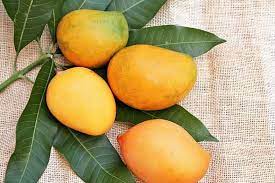
Three of the most powerful antioxidants are found in mango. They are: vitamins A, C and E. Each of these performs excellently well, however, their combination is much more appropriate to obtain desired results.
In essence, benefits of eating mango here, entails that there will be prevention of oxidation of the cholesterol bearing lipoprotein which circulate in the bloodstream.
For individuals suffering from poor circulation of the blood, eating mango will be of great benefits so as to prevent heart attack or angina.
Diabetes
There is circulation complications associated with diabetes. However, diabetics can benefit from eating this fruit because it results on the arteries are healthful as it prevents the circulation complications linked with diabetes.
Eating mango will help increase urine production because they are diuretic. This is because of its potassium content and low sodium. This makes them highly recommended for individuals suffering from high blood pressure.
Retinal Condition
Vitamin A is good for vision and the good thing here is that the presence of vitamins A and C help potentiate the action of vitamin A.
Where there is vision loss due retinal conditions such as night blindness, thrombosis in the central retinal artery or optic nerve atropy, consumption of mango is highly recommended.
Benefits of Eating Strawberries
Benefits of Eating Pomegranate

A graduate of Computer Science and Information Management Technology. Diploma – Caregiving, Certificates – Dementia and Diabetes Awareness and Management. A researcher, blogger, songwriter, singer and acoustic guitarist. Born in an environment where natural talents such as healing are imparted at our natural birth. This natural talents of healing is the result of our genetic inheritance and the training from family environment.

